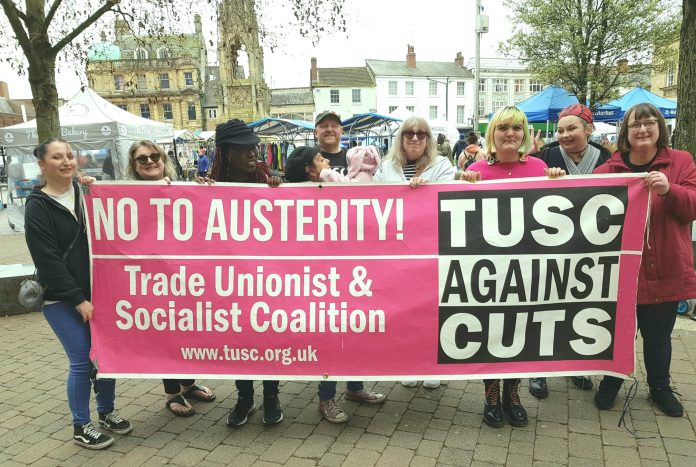The 21,696 votes won by its candidates in May’s local council elections is only a modest step forward for the Trade Unionist and Socialist Coalition (TUSC) electoral alliance. But in many ways this was the most significant campaign that TUSC has conducted since the relaunch of the coalition in September 2020.
Co-founded in 2010 by the late Bob Crow, the then general secretary of the RMT transport workers’ union, it reached its electoral zenith – to date – in 2015, when TUSC candidates in the general and local elections in May that year polled a combined total of 118,125 votes.
The situation changed, however, with the unexpected victory of Jeremy Corbyn as Labour leader in September 2015, a development that was warmly welcomed by all TUSC participants.
In the coalition’s founding statement, TUSC had acknowledged that there were “different strategic views about the way forward for the left in Britain, whether the Labour Party can be reclaimed by the labour movement, or whether a new workers’ party needs to be established”. With the possibility of a Corbyn-led government at play, TUSC recalibrated its electoral activity and did not contest the 2017 and 2019 general elections.
But the situation has changed again. It is clear that with Sir Keir Starmer’s leadership, and the ruthless purging of the personnel and policies of the Corbyn era, the capitalist establishment has regained decisive control of the Labour Party.
Yet building after a defeat is not always the easiest task, with activists without a clear socialist perspective sometimes weighed down by negative aspects of the experience and unable to see a way forward. Support for the idea that trade unions or working-class community campaigners could take their own initiative at election time and stand themselves against the capitalist politicians is only now starting to revive, after almost a year of struggle against the cost-of-living crisis has shown again the latent power of the organised working class.
That’s why TUSC’s 2023 campaign was important, the propaganda of the deed. With no elections this year in Scotland or Wales, or the big cities of London, Birmingham and Bristol – for the first time since the relaunch – it was an achievement in itself to get 256 candidates across 65 councils onto the ballot paper. The reports included here give a glimpse of the impact of the different campaigns, which all left a mark. Candidates in nearly one sixth of the wards contested by TUSC reached the ‘five percent’ benchmark this year, compared to one tenth of the candidates in 2021.
And there are signs of a wider preparedness to challenge Starmer and his local agents at the ballot box. To the fore were the former Liverpool Labour councillors, suspended and subsequently expelled from Labour for voting against the council’s cuts budget in 2022, two of whom were re-elected, along with another supporter, as Liverpool Community Independent councillors. The former leader of the Portsmouth council Labour group, excluded as a Labour candidate in January for his support for the left-wing Momentum group, was also victorious.
All these steps are important but the situation is really crying out for a decisive intervention by the left-led trade unions, and Jeremy Corbyn with them.
The Socialist Party will be arguing for TUSC to continue its pioneering work of providing a unifying umbrella for trade unionists, community campaigners and socialists of different organisations or none, to fight together at the ballot box in the 2024 local elections and the general election to come.
But more powerful forces also need to step up to the plate.
The Socialist issue 1226 carried reports from some of the TUSC campaigns which can be read here:
- Anti-cuts stand cuts through Leicester Labour turmoil
- Tackling food poverty, supporting strikes: Building the fightback with TUSC stand in Southampton
- Over 2,800 votes against austerity in Sheffield
- Shine comes off Greens in power in Brighton
- Fight for a new mass worker’s party needed in Worcester
- Plymouth needs councillors that are accountable to the working class
- ‘Working class people deserve to vote for a party that will fight for them’







